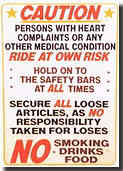Monday, January 17, 2005
PRESERVING THE COURAGE OF VISIONARIES
"It is a terrible thing to see and have no vision." Helen Keller
Most of us are not sitting around today meditating on the life of Rev. Dr. Martin Luther King. But without this holiday marking his birthday, I wonder how much collective memory of this incomparable soul would be remaining...
We have short memories in America. We also like to de-radicalize our visionaries, so that their example does not disturb complacency. Particularly the ones who were murdered for acting on those visions: Dr. King. Malcolm X. Abraham Lincoln. Robert Kennedy. These people became more radical as they gained in experience & understanding.
I was nearly a grown man when I learned the truth about one of my early heroes, Helen Keller. I only stuttered, a very minor "handicap" compared to being born deaf & blind. Keller was held up to me as an example of "courage" in overcoming disability. Was that all her "courage?" Wasn't the half of it. She became a militant socialist, a suffragist, a supporter of all unionism from the IWW to Actor's Equity. She contributed money to civil rights organizations. In a 1915 published article, Keller denounced Rockefeller as a "monster of Capitalism." She helped found the ACLU. She supported Margaret Sanger's work. & she campaigned against child labor, whose sweat she could smell when taken into sweat shops. In 1948, the year I was born, Keller at age 68 visited Hiroshima & Nagasaki. By the time I encountered Keller, she was a smiling, sickly old woman in a photograph with President Eisenhower, her life's work so reduced in children's books that it is still summed up like this:
"Helen Keller couldn't see or hear, but for more than eighty years, she had always been busy. She read and wrote books. She learned how to swim and even how to ride a bicycle. She did many things well. But most of all, Helen Keller brought hope and love to millions of handicapped people."*
Yes, "she had always been busy." Riding a bicycle, perhaps. So we have to guard against Dr. King being turned into a genial Baptist minister who spent his life preachin', marchin', organizin' & speechifyin' for equal rights, a "busy" man indeed. We must always remember Dr. King while also remembering (at the least) Emmett Till; Medger Evers; Addie Mae Collins, Denise McNair, Carole Robertson, & Cynthia Wesley; William L. Moore; Rev. George Lee; Herbert Lee; James E. Chaney, Andrew Goodman, & Michael Schwerner; Jonathan Myrick Daniels; Viola Liuzzo. A full list would include approximately 3,500 black Americans lynched between 1880 & Dr. King's assassination in 1968. Dr. King's road was no "cakewalk." He could have been murdered at any step on the road. What finally got him killed was a vision of justice that transcended race & even nationality.
[Helen Keller died June 1, 1968, outliving Dr. King]
*Joanne Hurwitz. Helen Keller: Courage in the Dark. Random House 1997.
Add YOUR comments here
"If a nation expects to be ignorant and free, in a state of civilization, it expects what never was and never will be." Thomas Jefferson
Most of us are not sitting around today meditating on the life of Rev. Dr. Martin Luther King. But without this holiday marking his birthday, I wonder how much collective memory of this incomparable soul would be remaining...
We have short memories in America. We also like to de-radicalize our visionaries, so that their example does not disturb complacency. Particularly the ones who were murdered for acting on those visions: Dr. King. Malcolm X. Abraham Lincoln. Robert Kennedy. These people became more radical as they gained in experience & understanding.
I was nearly a grown man when I learned the truth about one of my early heroes, Helen Keller. I only stuttered, a very minor "handicap" compared to being born deaf & blind. Keller was held up to me as an example of "courage" in overcoming disability. Was that all her "courage?" Wasn't the half of it. She became a militant socialist, a suffragist, a supporter of all unionism from the IWW to Actor's Equity. She contributed money to civil rights organizations. In a 1915 published article, Keller denounced Rockefeller as a "monster of Capitalism." She helped found the ACLU. She supported Margaret Sanger's work. & she campaigned against child labor, whose sweat she could smell when taken into sweat shops. In 1948, the year I was born, Keller at age 68 visited Hiroshima & Nagasaki. By the time I encountered Keller, she was a smiling, sickly old woman in a photograph with President Eisenhower, her life's work so reduced in children's books that it is still summed up like this:
"Helen Keller couldn't see or hear, but for more than eighty years, she had always been busy. She read and wrote books. She learned how to swim and even how to ride a bicycle. She did many things well. But most of all, Helen Keller brought hope and love to millions of handicapped people."*
Yes, "she had always been busy." Riding a bicycle, perhaps. So we have to guard against Dr. King being turned into a genial Baptist minister who spent his life preachin', marchin', organizin' & speechifyin' for equal rights, a "busy" man indeed. We must always remember Dr. King while also remembering (at the least) Emmett Till; Medger Evers; Addie Mae Collins, Denise McNair, Carole Robertson, & Cynthia Wesley; William L. Moore; Rev. George Lee; Herbert Lee; James E. Chaney, Andrew Goodman, & Michael Schwerner; Jonathan Myrick Daniels; Viola Liuzzo. A full list would include approximately 3,500 black Americans lynched between 1880 & Dr. King's assassination in 1968. Dr. King's road was no "cakewalk." He could have been murdered at any step on the road. What finally got him killed was a vision of justice that transcended race & even nationality.
[Helen Keller died June 1, 1968, outliving Dr. King]
*Joanne Hurwitz. Helen Keller: Courage in the Dark. Random House 1997.
Add YOUR comments here














